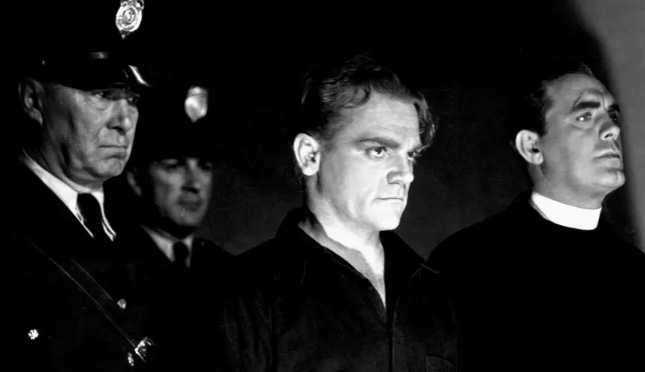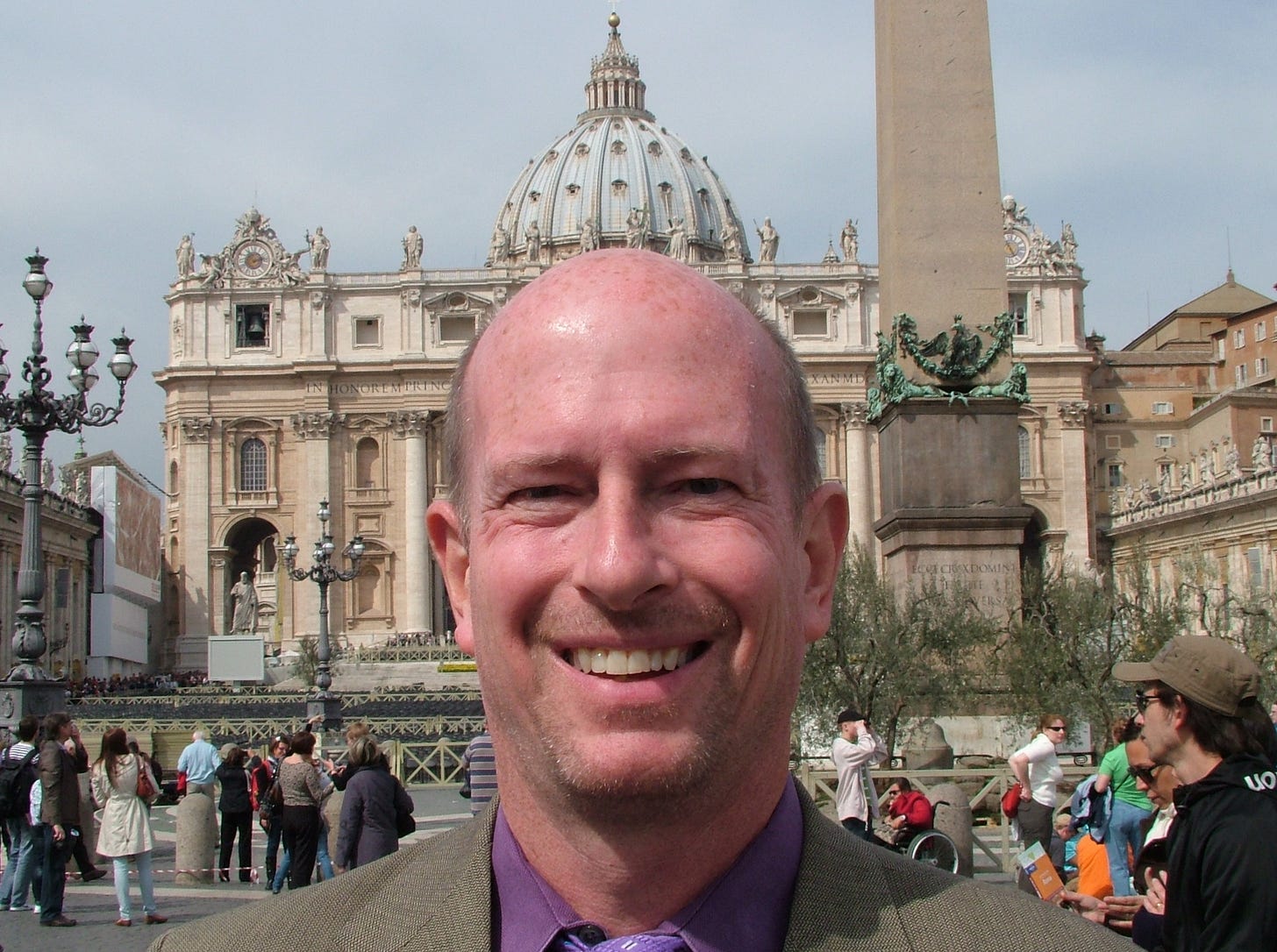There’s an old joke you have to be a cradle Catholic to appreciate. You’ve probably heard it.
So this middle-age man walks into church, late for Mass, and stands in the back, watching the priest from afar in a packed church.
Instantly, a dutiful usher walks up to him and whispers, “There’s a place near the front on the right.”
The man smiles, nods his head, and waves his hand, saying, “Thank you. I’m fine.”
Five minutes later, the usher returns. He mentions another seat that is available.
“No, I’m okay,” the middle-aged man says. “Thank you anyway, though.”
Ten minutes later, the usher returns once more.
“Goddamn it,” the old grump snarls under his breath. “Let me pray in peace!”
“Oh, I’m sorry,” the usher says apologetically. “I didn’t realize you’re Catholic.”
Not a very good joke, I know, but it does capture, at least for me, the difference between mildly irreverent, Mass-skipping cradle Catholics and the pious converts, many from “hands in the air” Bible-believing evangelical churches, who now dominate many Catholic circles these days, especially on the Internet.
And no, I’m not talking about J.D. Vance, who actually strikes me as closer to the cradle Catholic sensibility than many of his fellow converts. (Growing up in a family of pistol-packing drug addicts may help.)
I have nothing against converts. In fact, most of my favorite Catholic writers, from St. John Henry Newman and G.K. Chesterton to Frank Sheed, Everlyn Waugh, Thomas Merton and Gerald Manley Hopkins, were all converts to the Faith.
I’d even say some the greatest minds in the Church, at least in the past century, are converts.
Think of the philosophers and authors who were converts, such as Edith Stein, Gabriel Marcel, G. E. M. Anscombe and Peter Geach, Frederick Copleston (the Jesuit author of an encyclopedia of philosophy), Dietrich von Hildebrand, Jacques Maritain, Walker Percy, and E. F. Schumacher, to name just a few
People born into the Catholic Church desperately need these people.
Like princes and princesses born into a grand palace, bored with it all, we take most things for granted. We need to see the treasures we have in the eyes of other people who know better than we do.
Yet there is a subtle difference in attitude.
There is a piety, a public wearing of their Faith on their sleeve, that is understandably hovering in the air around converts.
It’s virtually undetectable to the untrained eye yet obvious to anyone who was raised in a church populated by so many Mafia dons, sexual deviants and corrupt prelates.
Cradle Catholics not only believe that everyone is a sinner; we know it in our bones.
It might be all those sessions in the confessional, that we made or skipped, that lets us know this.
Or maybe it’s the regular recitation of the rosary with the line, ora pro nobis peccatoribus, pray for us sinners, now and at the hour of our death, that makes us instinctively reluctant to blow our horns in the synagogue, lest God strike us down in our sleep.
In other words: it takes a lot to surprise a lifelong Catholic.
Alcoholism? Adultery? Cheating at bingo? We’ve seen it all.
Like the publican in the Gospel story, sitting way in the back of the church is our natural home.
As a result, it’s no accident that so many prominent “celebrity” Catholics in the media are converts.
I mean, Jesus Christ himself, Jonathan Roumie, is a convert!
Mel Gibson, on the other hand, is a cradle Catholic.
Need I say more?
But maybe it’s the Angels with Dirty Faces factor.
You know the old Jimmy Cagney movie?
So two prepubescent petty criminals are both running from the police.
One gets caught, sent to Juvie and grows up to be a famous gangster (Cagney). The other one gets away and becomes a Catholic priest (Pat O'Brien).
The famous gangster eventually kills a man and gets sentenced to the electric chair.
His old friend, the priest, visits him on death row. The priest asks him for a favor.
When he goes to his death, the priest says, he wants the gangster to beg for mercy like a baby.
The gangster is outraged.
He’s no coward! There’s no way in hell he’ll ever do anything like that. He’ll die like a man.
The priest replies that he knows that’s true. But he explains that he knows hundreds of kids (this is supposed to be 1930s Chicago) who idolize the famous gangster, and who want to grow up to be just like him.
You know the rest.
The final scene is the priest listening to a radio station, broadcasting live from the “death house.” You can hear the voice of Jimmy Cagney, begging for his life, terrified beyond words.
The priest smiles.
Betwixt the saddle and the ground was mercy sought and mercy found.
No, we cradle Catholics know that grace is found in unexpected places, in unexpected people. Converts understand this too, of course, but I think this is our special vocation.
One of my favorite novels is Rumar Godden’s Five for Sorrow, Ten for Joy, about a former madam in Paris who does time for murder (she kills her pimp and former lover to save a young prostitute) and then joins a religious order made up of former prostitutes – a real order, by the way.
Like the grumpy old man standing in the back of church during Mass, the heroine of this story has no illusions about her life.
She keeps her head down, doing her best to make it up to God.
That, in a nutshell, is the cradle Catholics I know.
We can’t tell you much about the ordo amoris, the way converts like J.D. Vance can, but we do understand forgiveness... and the long, long road that is keeping the faith.
Robert J. Hutchinson is the author of numerous books of popular history, including Searching for Jesus: New Discoveries in the Quest for Jesus of Nazareth (Thomas Nelson), The Dawn of Christianity (Thomas Nelson), The Politically Incorrect Guide to the Bible (Regnery) and When in Rome: A Journal of Life in Vatican City (Doubleday). Email him at: roberthutchinson@substack.com











